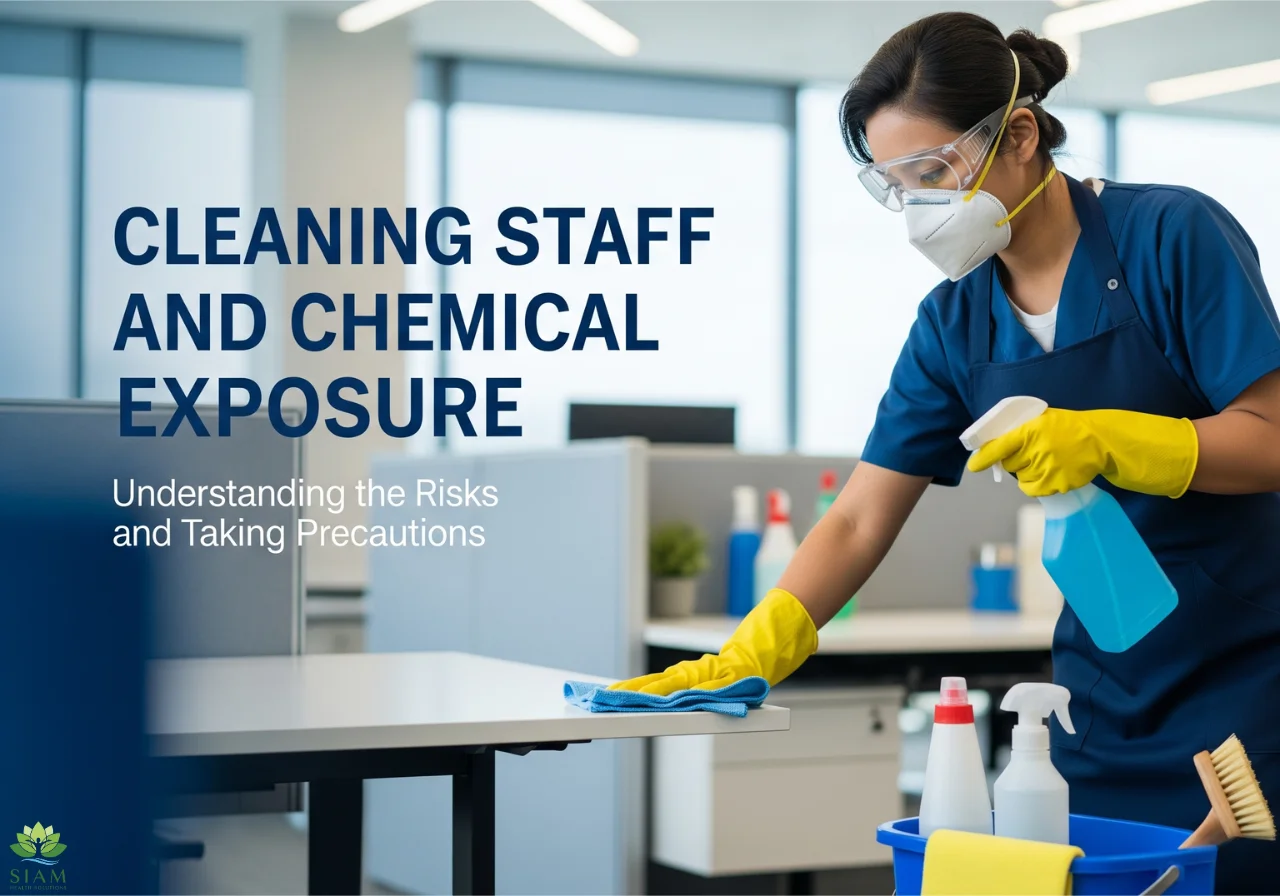Cleaning staff play a vital role in keeping homes, offices, and public spaces safe and welcoming. Yet, behind the shine and sparkle, many workers face daily exposure to harsh chemicals that can affect their health in subtle and sometimes severe ways. Understanding your risks and the protections available to you is key. This article explores the realities of chemical exposure, offers legal insight into job-related accidents, and shows how workers’ compensation lawyers can be powerful allies when you need support.
The Hidden Dangers of Cleaning Chemicals
Cleaning products may look harmless when neatly lined up on a shelf, but many contain powerful agents designed to kill bacteria, remove grease, and strip away dirt. While effective, they can also cause skin irritation, respiratory problems, and long-term conditions if exposure is frequent or prolonged.
For example, ammonia and bleach are common culprits. Mixing them by accident can create toxic fumes that are extremely dangerous to inhale.
Fun fact: the word “bleach” actually comes from Old English, meaning to whiten, but its power has always been double-edged – capable of sanitizing but also harmful to health.
How Chemical Exposure Affects Health
Before diving into your legal protections, it’s important to understand the potential impact on your body.
Cleaning Staff: Immediate Reactions to Chemical Exposure
Some cleaning staff experience headaches, burning eyes, or skin rashes right after using certain products. These are warning signs that shouldn’t be ignored.
Long-Term Risks
Prolonged exposure has been linked to asthma, chronic bronchitis, and even reproductive health issues. Studies have shown that workers who clean regularly with strong agents may experience lung damage comparable to that of smokers. That’s a sobering reminder of how high the stakes can be.
Legal Protection for Cleaning Staff
When your job puts your health at risk, the law provides important protections. But these protections aren’t always straightforward, which is where legal guidance becomes critical.
Workers’ Compensation Rights
In most states, cleaning staff are entitled to workers’ compensation if they become ill or injured due to their work. This coverage can help with:
- Medical bills for treatments and check-ups
- Lost wages while recovering
- Long-term disability support if the condition is serious
The key is proving that your illness or injury is directly linked to workplace exposure. That’s not always easy, especially when symptoms develop slowly over time.
Why You May Need a Workers’ Compensation Lawyer
It’s possible to file a claim on your own, but having a skilled lawyer on your side can make a world of difference. Workers’ compensation lawyers understand the complexities of these cases and can help you gather the right medical evidence, file claims correctly, and challenge unfair denials. You can also find helpful tools online that make it easier to locate trusted professionals in your area when you need guidance:
Here’s a surprising fact: insurance companies deny or delay thousands of valid workers’ compensation claims every year, often banking on workers giving up. A lawyer’s job is to push back and ensure your voice is heard.
Cleaning Staff: Tips to Reduce Chemical Exposure
Legal protection is vital, but prevention should also be part of the conversation. Cleaning staff can take proactive steps to protect their health while on the job.
Use Protective Gear
Gloves, masks, and goggles aren’t just for show. They create barriers that limit direct contact with chemicals.
Ventilate the Space
Good airflow reduces the concentration of fumes. Something as simple as opening windows or using fans can make cleaning safer.
Know Your Products
Reading labels may seem obvious, but it’s often skipped in fast-paced work environments. Labels provide instructions and hazard warnings that can help avoid dangerous mistakes.
The Bigger Picture: Respect for Cleaning Staff
It’s worth remembering that cleaning staff are frontline defenders of public health. During the COVID-19 pandemic, their work became more visible and appreciated, yet many continue to work in risky conditions with limited recognition. Ensuring they have legal protection, safe workplaces, and fair compensation is not just about individual rights; it’s about building healthier communities.
Chemical exposure in the cleaning industry is more than just an inconvenience; it can have life-changing consequences. Knowing your rights, taking preventative measures, and seeking professional support when necessary are all part of protecting yourself. If you or someone you know has suffered due to workplace exposure, consulting a workers’ compensation lawyer can be the step that ensures fair treatment and long-term security.
Your health is your most valuable asset, and the law is there to help safeguard it. With the right information and support, cleaning staff don’t have to face these challenges alone.

Salman Khayam is a business consultant at Siam IT Solutions, specializing in digital marketing, PPC, SEO, web development, e-commerce, and email marketing. He designs custom strategies that deliver measurable success.



